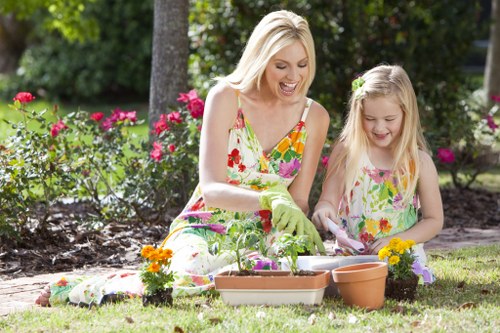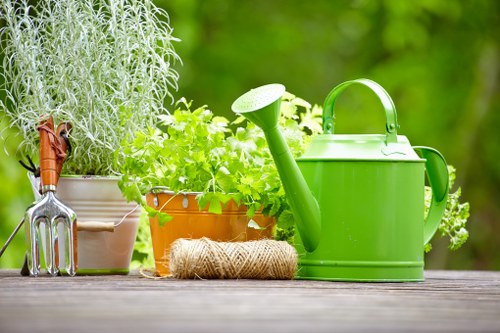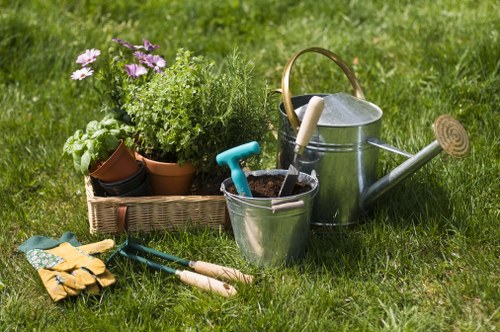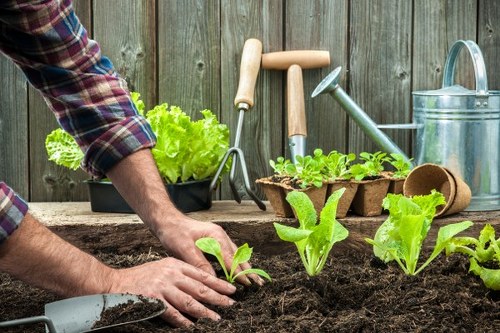Block Paving Cleaning in Aperfield

Maintaining the beauty and durability of your block paving in Aperfield is essential for both aesthetic and functional purposes. Over time, block paving can accumulate dirt, moss, algae, and other debris, which not only detracts from its appearance but can also lead to more serious issues like surface degradation and slippery walkways. In this article, we'll explore effective block paving cleaning methods, the benefits of professional cleaning services in Aperfield, and how to keep your paving looking pristine year-round.
Block paving cleaning Aperfield services offer specialized solutions tailored to the unique needs of local properties. Whether you're dealing with stubborn stains, moss growth, or general grime, professional cleaners have the tools and expertise to restore your paving to its original condition. Understanding the different cleaning techniques available can help you make an informed decision about the best approach for your specific situation.
One of the most common methods for block paving cleaning is pressure washing. This technique uses high-pressure water jets to remove dirt, moss, and algae from the surface of the paving. Pressure washing is highly effective for deep cleaning and can significantly improve the appearance of your outdoor spaces. However, it's important to use the correct pressure level to avoid damaging the blocks or the mortar between them.

Another popular method is chemical cleaning, which involves the application of specialized cleaning agents to break down and remove stains, moss, and algae. These chemicals are designed to be safe for both the environment and the paving material, ensuring that your block paving is cleaned thoroughly without causing any harm. After applying the chemicals, the area is typically rinsed off with water to remove any residue.
For those who prefer a more environmentally friendly approach, eco-friendly block paving cleaning solutions are available. These products use natural ingredients to clean and maintain your paving without relying on harsh chemicals. Eco-friendly cleaning not only benefits the environment but also ensures that your outdoor spaces remain safe for children and pets.
In addition to the cleaning methods mentioned, regular maintenance is crucial for preserving the longevity of your block paving. This includes sweeping away debris, removing weeds from between the blocks, and re-applying a sealant to protect the paving from moisture and stains. Regular maintenance can prevent the need for more intensive cleaning procedures and extend the life of your paving.

Hiring a professional block paving cleaning service in Aperfield offers numerous advantages. Professionals have access to high-quality equipment and cleaning agents that are not typically available to the general public. They also possess the knowledge and experience to handle various types of paving and stains effectively, ensuring the best possible results.
When selecting a block paving cleaning company in Aperfield, it's important to consider factors such as their reputation, the range of services they offer, and their pricing structure. Reading customer reviews and asking for recommendations can help you find a reliable and trustworthy service provider. Additionally, a reputable company will provide a clear outline of their cleaning process and any warranties or guarantees they offer.
Cost is another important consideration when it comes to block paving cleaning. While professional services may seem expensive initially, they often provide better and longer-lasting results compared to DIY methods. Investing in professional cleaning can save you time, effort, and money in the long run by preventing damage and reducing the need for future repairs.

Local climate conditions in Aperfield can impact the effectiveness of block paving cleaning. The region's weather patterns, including rain and humidity levels, can contribute to the growth of moss, algae, and other organic matter on your paving. Understanding how these factors affect your block paving can help you choose the right cleaning schedule and methods to keep your surfaces in top condition.
Seasonal maintenance plays a key role in block paving upkeep. In the spring and summer months, increased moisture and plant growth can lead to more rapid accumulation of moss and algae. Regular cleaning during these seasons can prevent these issues from becoming severe. In the autumn and winter, protecting your paving from freeze-thaw cycles is important to avoid cracking and deterioration.
Proper drainage is essential for maintaining block paving. Poor drainage can lead to water pooling, which can exacerbate the growth of moss and algae and cause damage to your paving. Ensuring that your paving has adequate drainage and is graded correctly can help prevent these problems and prolong the life of your blocks.

In addition to cleaning, sealing your block paving is an effective way to protect it from the elements. A good sealant creates a barrier that repels water, stains, and contaminants, making it easier to keep your paving clean. Sealing should be done after the paving has been thoroughly cleaned and dried to ensure maximum effectiveness.
Choosing the right sealant is important for achieving the best results. There are different types of sealants available, including breathable sealants that allow moisture to escape while preventing stains from penetrating the blocks. Consulting with a professional can help you select the most suitable sealant for your specific paving type and local conditions.
Regularly scheduled professional block paving cleaning and sealing can significantly enhance the curb appeal of your property. Well-maintained paving not only looks attractive but also increases the value of your home. Whether you're preparing to sell or simply want to enjoy a beautiful outdoor space, investing in block paving cleaning Aperfield services is a smart choice.
DIY block paving cleaning can save money but may not achieve the same level of cleanliness as professional services. If you choose to clean your paving yourself, it's important to follow the correct procedures and use the appropriate equipment to avoid damaging the blocks. Safety precautions, such as wearing protective gear and ensuring proper ventilation when using chemicals, are also essential.
Common DIY block paving cleaning techniques include using a stiff broom or brush to manually scrub away dirt and debris. For more stubborn stains, a mixture of vinegar and water or baking soda and water can be effective. Additionally, steam cleaning is an option for those who prefer a chemical-free method, though it requires specialized equipment.
While DIY methods can be effective for routine maintenance, more extensive cleaning tasks may require professional intervention. Professionals can tackle tough stains and deeply ingrained moss with ease, providing a more thorough and lasting clean. They are also equipped to handle large areas efficiently, saving you time and effort.
Preventing future block paving issues involves regular upkeep and mindful practices. Avoid letting debris accumulate by regularly sweeping your paving and clearing out any blocked drains or gutters. Planting moss-resistant plants and using lime or other treatments can deter moss growth naturally.
Education on proper block paving maintenance can empower homeowners to take better care of their outdoor spaces. Understanding the causes of common paving problems and how to address them can help preserve the integrity and beauty of your paving for years to come.
Ultimately, whether you choose to hire a professional or take a DIY approach, consistent care and timely maintenance are key to keeping your block paving in Aperfield looking its best. By investing time and resources into regular cleaning and protection, you can enjoy a stunning and functional outdoor area that enhances your home's overall appeal.
Conclusion
Block paving cleaning Aperfield is an essential aspect of property maintenance that ensures the longevity and beauty of your outdoor spaces. With various cleaning methods available, from pressure washing to chemical treatments, and the option of professional services, keeping your paving in top condition has never been easier. Regular maintenance, combined with proper sealing and preventive measures, can protect your investment and enhance the overall appeal of your home. Whether you opt for a DIY approach or enlist the help of experts, taking proactive steps to care for your block paving will pay off in the long run.
Frequently Asked Questions
1. How often should I have my block paving cleaned?
It's recommended to have your block paving professionally cleaned at least once a year. However, the frequency may vary depending on factors such as local climate, level of use, and the presence of moss or algae. Regular inspections can help determine the best cleaning schedule for your specific needs.
2. Can I use regular household cleaning products on my block paving?
While some household cleaning products can be used for block paving cleaning, it's important to choose products that are safe for both the paving material and the surrounding environment. Professional cleaners often use specialized agents that are more effective and less likely to cause damage.
3. Is it necessary to seal block paving after cleaning?
Sealing block paving after cleaning is highly recommended as it helps protect the surface from moisture, stains, and damage. A good sealant can also make future cleaning easier and extend the life of your paving.
4. What are the signs that my block paving needs cleaning?
Signs that your block paving may need cleaning include visible dirt and stains, the growth of moss or algae, slippery surfaces, and uneven or damaged blocks. Regular maintenance can help address these issues before they become more serious.
5. Can block paving cleaning improve the value of my property?
Yes, well-maintained block paving can enhance the curb appeal of your property, making it more attractive to potential buyers. Clean and attractive outdoor spaces are often seen as a valuable asset and can contribute to a higher property value.


